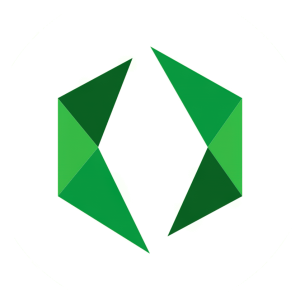Revolution Medicines’ RAS(ON) Multi-Selective Inhibitor Daraxonrasib Granted U.S. FDA Orphan Drug Designation in Pancreatic Cancer
Rhea-AI Summary
Revolution Medicines (NASDAQ: RVMD) announced on October 27, 2025 that the U.S. FDA granted Orphan Drug Designation to daraxonrasib for the treatment of pancreatic cancer.
Daraxonrasib is a RAS(ON) multi-selective inhibitor currently being studied in a global Phase 3 RASolute 302 trial for second-line metastatic pancreatic ductal adenocarcinoma (PDAC). The company also plans two additional Phase 3 trials: one for first-line metastatic PDAC and one for adjuvant treatment in resectable PDAC.
The designation makes daraxonrasib eligible for incentives, including tax credits for clinical trial costs, exemption from certain FDA fees, and up to seven years of market exclusivity if approved.
Positive
- FDA Orphan Drug Designation for daraxonrasib dated October 27, 2025
- Daraxonrasib enrolled in global Phase 3 RASolute 302 trial
- Plans announced for two additional Phase 3 pancreatic cancer trials
- Designation yields tax credits and exemption from certain FDA fees
- Potential up to seven years of market exclusivity if approved
Negative
- Daraxonrasib is not approved; currently investigational in Phase 3 trials
- No trial readout dates or approval timelines specified in the announcement
News Market Reaction
On the day this news was published, RVMD gained 6.44%, reflecting a notable positive market reaction. Argus tracked a peak move of +2.8% during that session. Our momentum scanner triggered 40 alerts that day, indicating elevated trading interest and price volatility. This price movement added approximately $663M to the company's valuation, bringing the market cap to $10.96B at that time.
Data tracked by StockTitan Argus on the day of publication.
REDWOOD CITY, Calif., Oct. 27, 2025 (GLOBE NEWSWIRE) -- Revolution Medicines, Inc. (Nasdaq: RVMD), a late-stage clinical oncology company developing targeted therapies for patients with RAS-addicted cancers, today announced that the U.S. Food and Drug Administration (FDA) has granted Orphan Drug Designation to daraxonrasib, the company’s RAS(ON) multi-selective inhibitor, for the treatment of pancreatic cancer.
“We are gratified the FDA has granted Orphan Drug Designation to daraxonrasib for the treatment of pancreatic cancer, a devastating disease with limited therapeutic options and representing a large unmet medical need,” said Mark A. Goldsmith, M.D., Ph.D., chief executive officer and chairman of Revolution Medicines. “RAS driver mutations are present in nearly all pancreatic cancer cases, underscoring the urgent need for innovative therapies that target this critical driver of disease progression.”
Daraxonrasib is being studied in a global Phase 3 clinical trial, RASolute 302, in patients with second line metastatic pancreatic ductal adenocarcinoma (PDAC). The company has also announced plans to initiate two additional Phase 3 clinical trials in pancreatic cancer: a trial for first line treatment in patients with metastatic PDAC and a trial for adjuvant treatment in patients with resectable PDAC.
Orphan Drug Designation is awarded by the FDA on behalf of selected investigational drugs to encourage the development of therapies for rare diseases, which are defined as conditions affecting fewer than 200,000 individuals in the United States. This designation provides sponsors with several incentives, including tax credits for clinical trial costs, exemption from certain FDA fees, and up to seven years of market exclusivity following approval.
About Pancreatic Cancer and Pancreatic Ductal Adenocarcinoma
Pancreatic cancer is one of the most lethal malignancies, characterized by its typically late-stage diagnosis, resistance to standard chemotherapy, and high mortality rate. In the U.S., recent estimates indicate that approximately 60,000 people will be diagnosed annually with pancreatic cancer1, and about 50,000 people will die from this aggressive disease.
Due to the lack of early symptoms and detection methods, approximately
About Daraxonrasib
Daraxonrasib (RMC-6236) is an oral, direct RAS(ON) multi-selective inhibitor with the potential to help address a wide range of cancers driven by oncogenic RAS mutations. Daraxonrasib suppresses RAS signaling by blocking the interaction of RAS(ON) with its downstream effectors. It does so by targeting oncogenic RAS mutations G12X, G13X and Q61X that are common drivers of major cancers, including pancreatic ductal adenocarcinoma (PDAC), non-small cell lung cancer (NSCLC) and colorectal cancer (CRC).
About Revolution Medicines, Inc.
Revolution Medicines is a late-stage clinical oncology company developing novel targeted therapies for patients with RAS-addicted cancers. The company’s R&D pipeline comprises RAS(ON) inhibitors designed to suppress diverse oncogenic variants of RAS proteins. The company’s RAS(ON) inhibitors daraxonrasib (RMC-6236), a RAS(ON) multi-selective inhibitor; elironrasib (RMC-6291), a RAS(ON) G12C-selective inhibitor; and zoldonrasib (RMC-9805), a RAS(ON) G12D-selective inhibitor, are currently in clinical development. The company anticipates that RMC-5127, a RAS(ON) G12V-selective inhibitor, will be its next RAS(ON) inhibitor to enter clinical development. Additional development opportunities in the company’s pipeline focus on RAS(ON) mutant-selective inhibitors, including RMC-0708 (Q61H) and RMC-8839 (G13C). For more information, please visit www.revmed.com and follow us on LinkedIn.
Forward Looking Statements
This press release contains forward-looking statements within the meaning of the U.S. Private Securities Litigation Reform Act of 1995. Any statements in this press release that are not historical facts may be considered "forward-looking statements," including without limitation statements regarding: the company’s development opportunities, plans and timelines and its ability to build or advance its portfolio and R&D pipeline; the company’s expectations regarding timing of clinical trial initiation, enrollment and data readouts or disclosures, including statements about the Company’s plans to initiate additional Phase 3 trials in first line PDAC and in patients with resectable PDAC. Forward-looking statements are typically, but not always, identified by the use of words such as "will," "plan," "anticipate," "estimate," "expect," and other similar terminology indicating future results. Such forward-looking statements are subject to substantial risks and uncertainties that could cause the company’s development programs, future results, performance or achievements to differ materially from those anticipated in the forward-looking statements. Such risks and uncertainties include without limitation risks and uncertainties inherent in the drug development process, including the company’s programs’ current stage of development, the process of designing and conducting preclinical and clinical trials, risks that the results of prior clinical trials may not be predictive of future clinical trials, clinical efficacy, or other future results, the regulatory approval processes, the timing of regulatory filings, the challenges associated with manufacturing drug products, the company’s ability to successfully establish, protect and defend its intellectual property, other matters that could affect the sufficiency of the company’s capital resources to fund operations, reliance on third parties for manufacturing and development efforts, changes in the competitive landscape, and the effects on the company’s business of the global events, such as international conflicts or global pandemics. For a further description of the risks and uncertainties that could cause actual results to differ from those anticipated in these forward-looking statements, as well as risks relating to the business of Revolution Medicines in general, see Revolution Medicines’ Quarterly Report on Form 10-Q filed with the Securities and Exchange Commission (the “SEC”) on August 6, 2025, and its future periodic reports to be filed with the SEC. Except as required by law, Revolution Medicines undertakes no obligation to update any forward-looking statements to reflect new information, events or circumstances, or to reflect the occurrence of unanticipated events.
Revolution Medicines Media & Investor Contact:
media@revmed.com
investors@revmed.com
1 Siegel RL, et al. CA Cancer J Clin. 2024;74:12-49.
2 Lee JK, Sivakumar S, Schrock AB, et al. Comprehensive pan-cancer genomic landscape of KRAS altered cancers and real-world outcomes in solid tumors. NPJ Precis Oncol. 2022;6(1);91. Doi:10.1038/s41698-022-00334-z.
3 American Cancer Society. Survival Rates for Pancreatic Cancer. Available at: https://www.cancer.org/cancer/types/pancreatic-cancer/detection-diagnosis-staging/survival-rates.html. Accessed June 2025.








